We Honor All Our Martyrs: The Student Intifada, Oct 10-16
OHCHR call-out, arrests over posters, BDS updates, and much more from The Student Intifada.
Welcome and welcome back.
As a movement, we tend to talk more in numbers than in names and lives. We document the devastation in Palestine, we tally the injuries and we count the dead. The mathematics of genocide.
We constantly reach for numbers to communicate a loss so vast that it exceeds comprehension. These numbers are powerful — they are one of the ways we can compel those in power to act, and one of the ways to account for the scale of the violence.
But numbers are impersonal and often numbing. —We Are Not Numbers
Suddenly, when one story cuts through, everything feels too large to hold. There is no abstract concept between us and the life that has been taken.
Shaban Ahmed Al-Dalou was killed two days before his 20th birthday. He was a brilliant student, a guitar player, an older brother, a son. He had dreams to study abroad. He cared for his family, worked hard to try and earn money, to keep his ambitions high, to recover, to live, to thrive.
We all know about Shaban’s death.
The death toll in Gaza has far surpassed the number of people one person might meet in a lifetime. There will never be a complete accounting of the loss of this genocide; figures and statistics fall short.
How can we hold both the scale and the detail of a genocide? Can we honor each martyr individually? To hold on to only one name can feel like a betrayal of all the others whose names we do not know.
But to focus on Shaban — to think of him not only as a martyr but as a whole person, a whole life, a whole world — is a way to reconnect to the reality that behind the number are complex, rich, and meaningful lifes. We Are Not Numbers was set up specifically as a way for Palestinian deaths to be Palestinian lives, not just numbers. Farida Algoul lived less than 100m from Shaban in the tents outside Al-Aqsa hospital. She wrote for WANN about the night of the fire::
Since that time, I have felt that my body is burning, that I am not okay. I feel like there is no breath, like I am suffocating, but I am still trying to live because my family needs me.
Let us unite to honor the memory of those who perished in the flames and to work tirelessly towards a future where no one has to experience such horror again.
Postponing our pens is not an option.
What did we miss?
Sweden, 19th September
On 19 September, the central student union of Stockholm University (SU) voted to officially work towards securing an academic boycott. It is the first time the student movement in Sweden has received any form of institutional support or endorsement. Since then, two faculty unions in SU, and two other labour unions outside SU have brought up motions that support the student movement. They will be voting soon.
Thank you to our comrades in Stockholm for updating us. Anything else we’ve missed? Let us know!
OHCHR call for input
Francesca Albanese, Special Rapporteur on the Palestinian Occupied Territories for the United Nations, is conducting an investigation into “the involvement of business enterprises, including financial institutions such as […] universities […] in the commission of international crimes connected to Israel’s unlawful occupation, racial segregation and apartheid regime in the occupied Palestinian territory”. Hundreds of student groups all across the globe have been collating information about their university’s investments and actions which breach international law. The Office of the United Nations High Commissioner for Human Rights (OHCHR) is collecting submissions until the 30th November; if you are in a student activist group with information that may be relevant, please learn more here about how to submit.
Updates from the intifada, October 10-16
Australia
On Friday 11th, students from the University of Sydney, University of New South Wales, and Macquarie University protested in front of the US consulate in North Sydney to call out the US and the Australian governments’ complicity in genocide. Days later, on the 13th, two USyd students were arrested and fined for putting up posters in a public park with information about an upcoming protest.
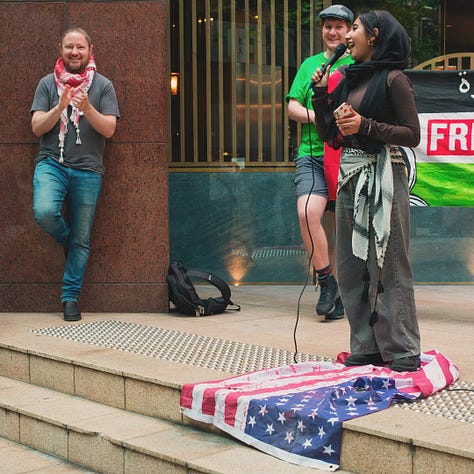
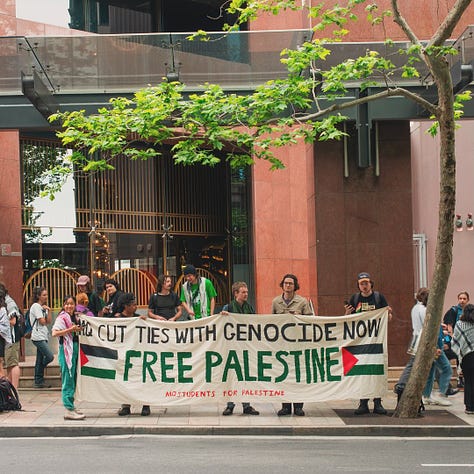
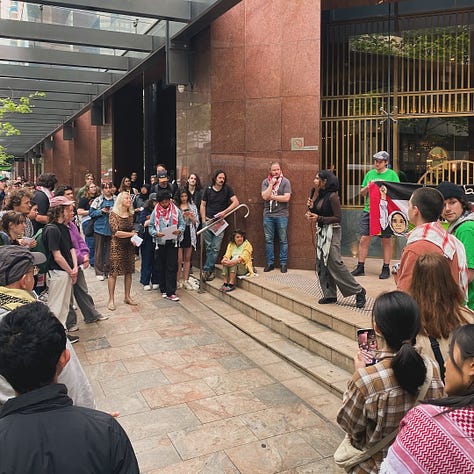
The Student Guild of Curtin University organised two fundraisers this week to help raise donations for Palestine Australia Relief and Action (PARA) and the Muslims Around the World (MATW) Project for their Lebanon Emergency Appeal. The first, on Friday 11th, was a screening of Palestine Under Siege, with a virtual Q&A with Rand Darwish, and then a BBQ later in the week both to raise money and to provide a moment of calm to students organizing on campus.
Germany
On Friday 11th, students disrupted the “Welcome Day” at the University of Freiburg. They stormed the stage, interrupting a dance show called “Everyone Human Rights”, staged by the university. In their statement they call out the hypocrisy of their University for maintaining its complicity in human rights violations and criminalising its students standing up for them.
The University continues to work with institutions that violate international law, tolerates racism and censors any initiative that tries to talk about Palestine. […] Yet, ironically, the university has decided to organise a show called “Everyone Human Rights“ where you can hear the Declaration of Human Rights playing in the background. These are the same rights they are actively violating on their premises.
On Monday 14th, students at Julius-Maximilian-University Würzburg launched a five-day protest camp, with a program of educational and communal events. Among other demands, they call on their University to cut ties with institutions in support of the genocide in Gaza, and make a public statement for ceasefire.
Another protest camp was launched on Wednesday 16th at the University of Heidelberg. Students named it “Rasha’s Camp”, after a ten-year-old girl killed in September alongside her younger brother in Gaza. The camp is located at Uniplatz, where four months ago a lecture on Palestine was held outside after the University canceled the event following a racist smear campaign.
United Kingdom
On Friday 11th, thirteen UK student groups for Palestine published a joint statement condemning the sudden decision by the University of Aberdeen to cancel a venue booked to host Zwelivelile 'Mandla' Mandela, the grandson of Nelson Mandela. This came after the British government barred Mandela from entering the country, preventing him from planned visits to campuses around the UK – Mandela instead spoke to students via Zoom.
On Sunday 13th, hundreds of people joined University of Cambridge students in a rally and march pressuring the institution to disclose and divest. They also highlighted brands which are targets of the BDS movement, that have shops open in Cambridge.
As multiple universities across the UK held careers fairs this week, student activists staged actions to protest the presence of companies complicit in genocide on their campuses. On Monday 14th, students at the University of Sheffield faced violence from security and contractors while blockading doors to the careers fair, demanding that the University cut ties with genocidal industries. The next day, students and local activists at Cardiff University rallied against the Royal Air Force being invited onto campus. Chants outside the building held speakers accountable for their surveillance of Gaza, aiding Israel’s genocidal campaign.
On Wednesday 16th, the BDS movement at University College London published a report titled UCL, Google DeepMind & Complicity in Israeli Apartheid, Occupation & Genocide.
South Africa
On Friday 11th, academics from the Stellenbosch University issued a letter to the Rector, Professor De Villiers, in defense of protesting students. The previous week University officials demanded, under threat of students facing disciplinary measures, that students take down a Palestinian flag draped over a desk during a Silent Study event.
On Wednesday 16th, the University of Cape Town was intending to host an open lecture with Claudius Senst, CEO of German Bild and COO of Axel Springer SE - Europe’s biggest publisher. Multiple of his publications are known for spreading Israeli propaganda, and one of the subsidiaries, Yad2, profits from the listing of Israeli settlements in occupied territories. After details of his profiteering from genocide were exposed by the students, the event was postponed last-minute.
France
On Tuesday 15th, students in the Île-de-France region took to the streets once more to demonstrate against the never-ending escalation of the horror unfolding in Palestine, and to call for an end to the genocide.
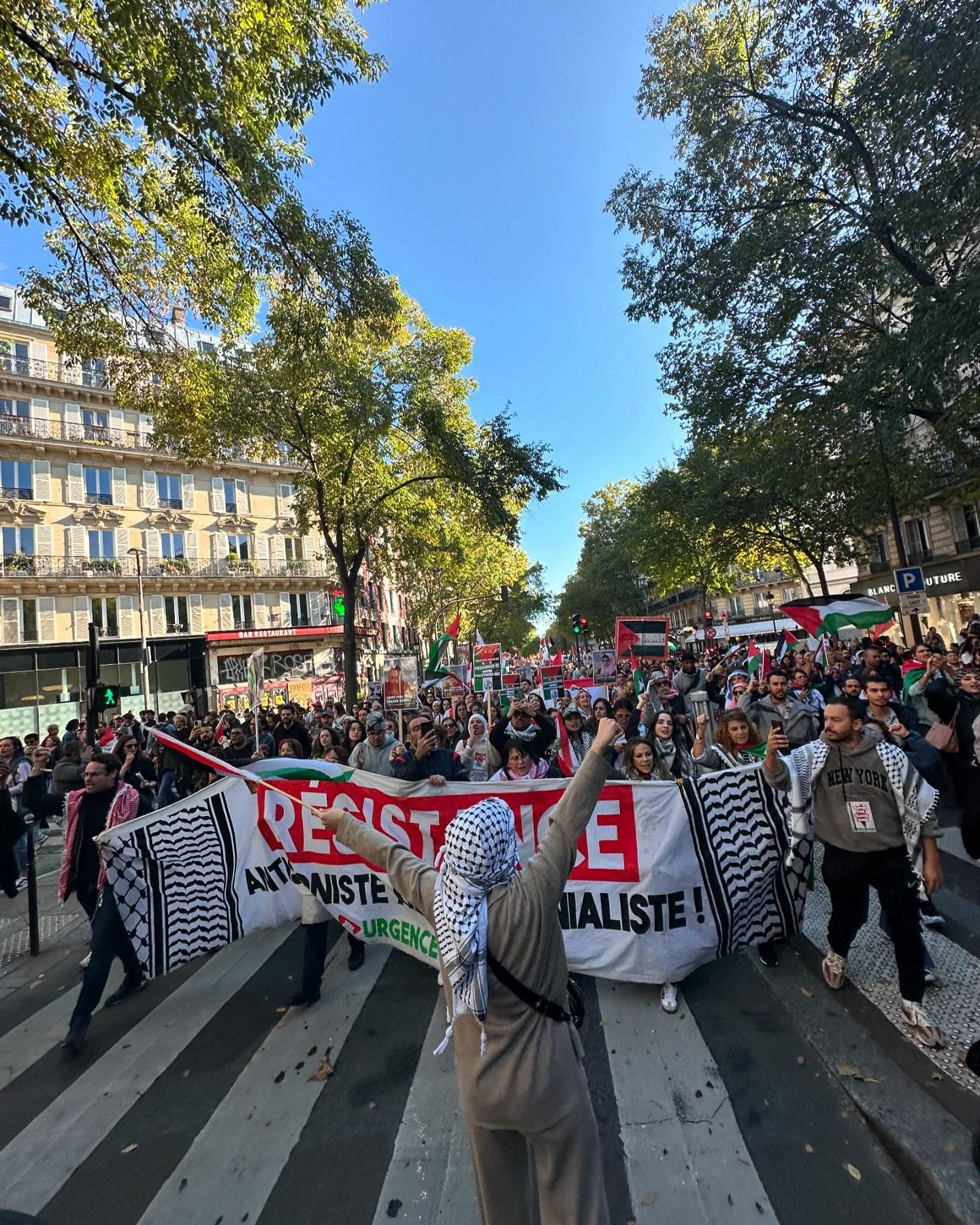
Belgium
On Monday 14th, the first general meeting of the year at Université Libre de Bruxelles was held, inviting students, non-students, staff, faculty, and workers to attend. Last year's demands were not met by the University, and there is still no academic boycott; so the movement persists.
On Tuesday 15th, students from the University of Antwerp organised a sit-in in a University building, inviting participants to wear a keffiyeh and/or a flag. These take place every Tuesday.
On Wednesday 16th, students from Université Libre de Bruxelles demonstrated in front of the United Arab Emirates embassy to denounce its complicity in the genocide of Palestinian and Sudanese people.
Also on Wednesday, the Université Catholique de Louvain welcomed Abeer Musleh, sociologist, researcher and Chair of the Department of Social Sciences at Bethlehem University, for a conference on the resilience of Palestinian youth.
United States
On Saturday 12th, students at the University of California posted an update about the University’s investments. The pressure of the student movement is working.. Six million dollars worth of direct holdings in BDS target companies like General Electric, Honeywell, and Exxon have vanished from the University’s latest financial reporting. Whether UC divested or found a way to hold these assets indirectly, the pro-Palestine movement is having direct financial impact.
Netherlands
On Saturday 12th, students from universities across the Netherlands led a wave of protests against one year of Israeli genocide in Palestine, and the complicity of the Dutch state. They expressed their solidarity with the people of Lebanon who are once again being attacked by Israel.
On Tuesday 15th, students from Amsterdam University College organized a food sale, with proceeds going to an organisation improving education in Lebanon. Organizers highlighted that ”education is the first to be lost and the last to be repaired during an aggression, and education is the only way to liberation.”
On Wednesday 16th, the Nijmegen encampment built an art installation on campus based on Picasso’s Guernica. Their installation intends to show that what is happening in Palestine is not so different from what happened in Guernica:
When Picasso painted Guernica, he wasn’t just depicting the horror of war; he was capturing the horror of indifference — the silence of those who could have acted, but chose not to. […] Just as the Basque people were dehumanized, labeled as subversive and expendable, Palestinians today face the same treatment. Their humanity is stripped away, their stories buried under the rubble of their homes.
Poland
The Academy for Palestine collective announced that on Tuesday 15th, students at the Jagiellonian University ended their occupational strike at the Collegium Broscianum building after 145 days of encampment.
Aotearoa/New Zealand
On Wednesday 16th, Otago Students for Justice in Palestine organised a seminar on “The Responsibility of Intellectuals” and Israel’s Genocidal Assault on Gaza, given by Professor of Philosophy Alex Miller. Noam Chomsky’s famous 1967 essay called for intellectuals to speak truth to power, as people “in a position to expose the lies of governments”.
Parting thoughts
Inspired by our final update, a talk organized by comrades at the University of Otago.
What does it mean to be an intellectual? Operating within the context of higher education, while also demanding change to the way the system operates, this question is something members of the global student intifada have been examining more closely than ever over the last year.
Basel Al-Araj was a young Palestinian author, community organizer, and activist. He believed in equipping Palestinians with knowledge about the history of resistance, political theory, and how to fight for full, unconditional liberation. He led tours around the West Bank with the Popular University, a project designed to revive the stories of forgotten revolutionaries.
“If you want to be an intellectual,” he said on his tours, “you have to be engaged. If you don’t want to be engaged — if you don’t want to confront oppression — your role as an intellectual is pointless.”
Basel was martyred by the Israeli regime in 2017. Since then, he has come to be known as “the educated martyr” among Palestinian activists. He confronted the Israeli occupation with a pen in one hand, and a bullet in another; acknowledging the power of knowledge and more importantly, the importance of utilizing knowledge in the pursuit of justice. Through his words, he expanded the rigid outlook on education which the western world has instilled in the minds of students. To be involved in the “intellectual” sphere of education isn’t to be disconnected from the reality of the world around us. It should be based in questioning: just as we question assumed knowledge to find areas of weakness, we question assumed truths about the institutions we operate within.
The same skills which make a good academic – curiosity, communication, and the refusal to accept an insufficient answer – are those which make for a strong activist. A new generation of young people in academia are transforming their knowledge into a tool to confront oppression, just as Basel Al-Araj taught his students and comrades to do.
Read more about Basel Al-Araj, his life, and his writings, here.
In solidarity and resistance, The Student Intifada.
Written this week by comrades from the UK, Poland, Germany, France, the US, and Belgium.

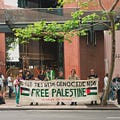
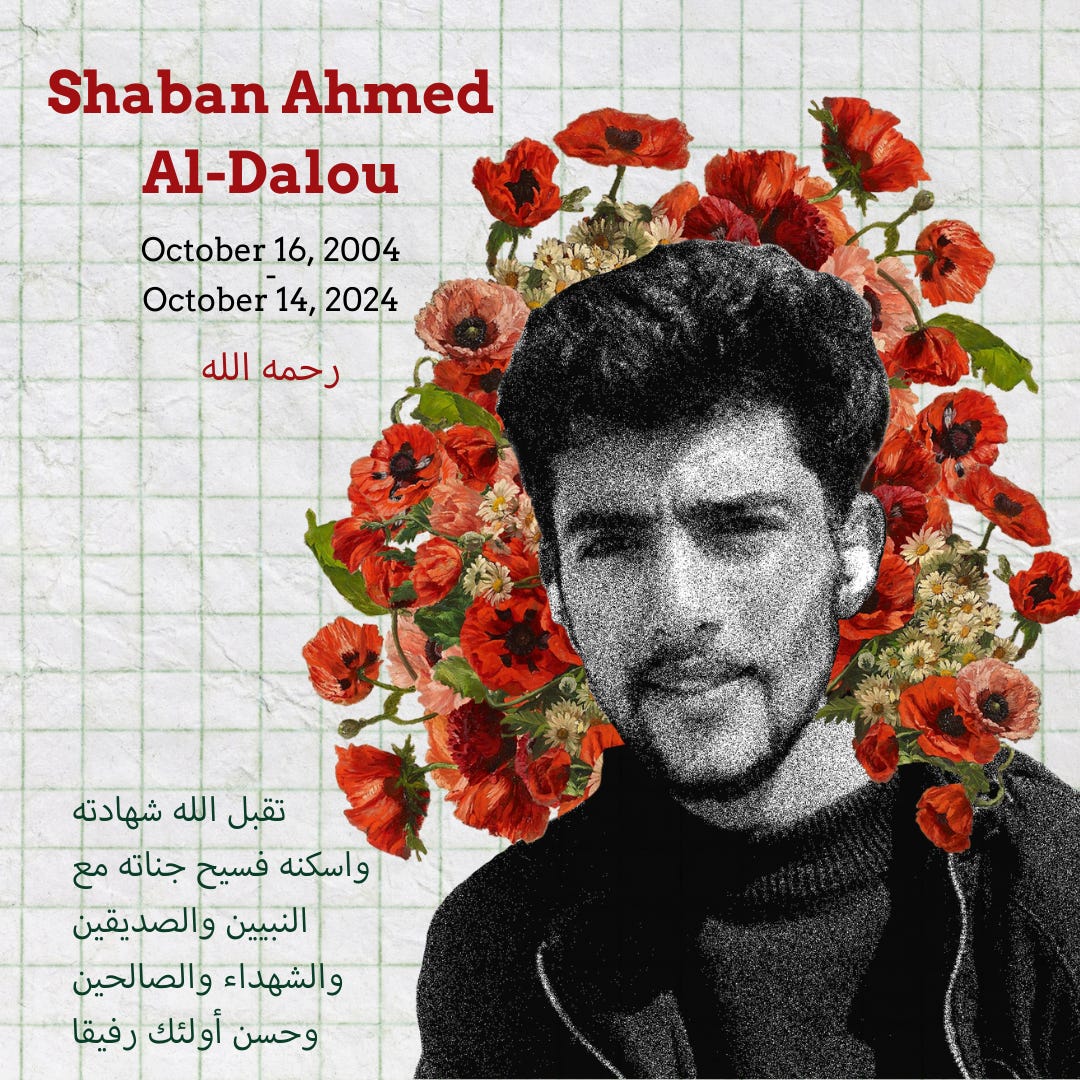
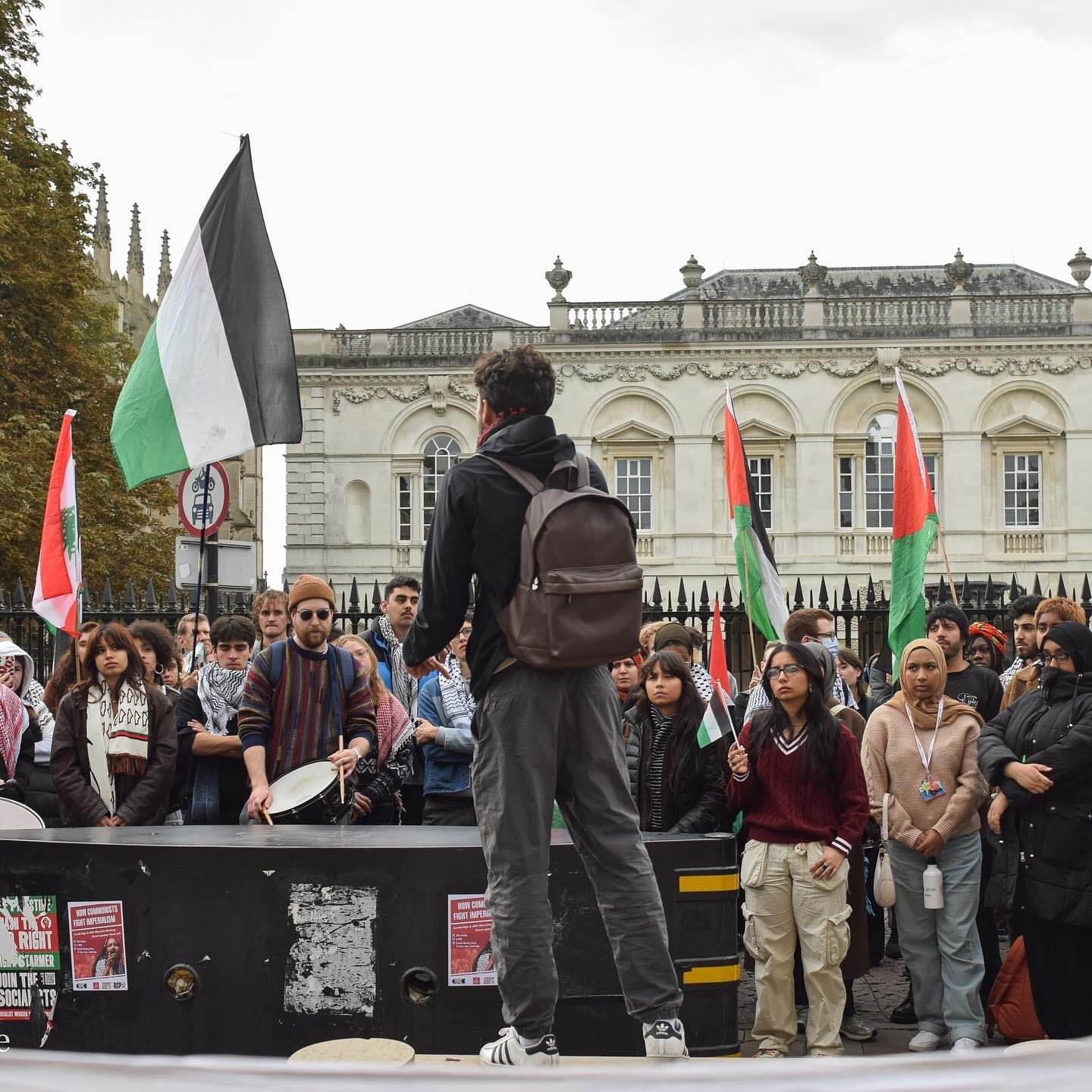

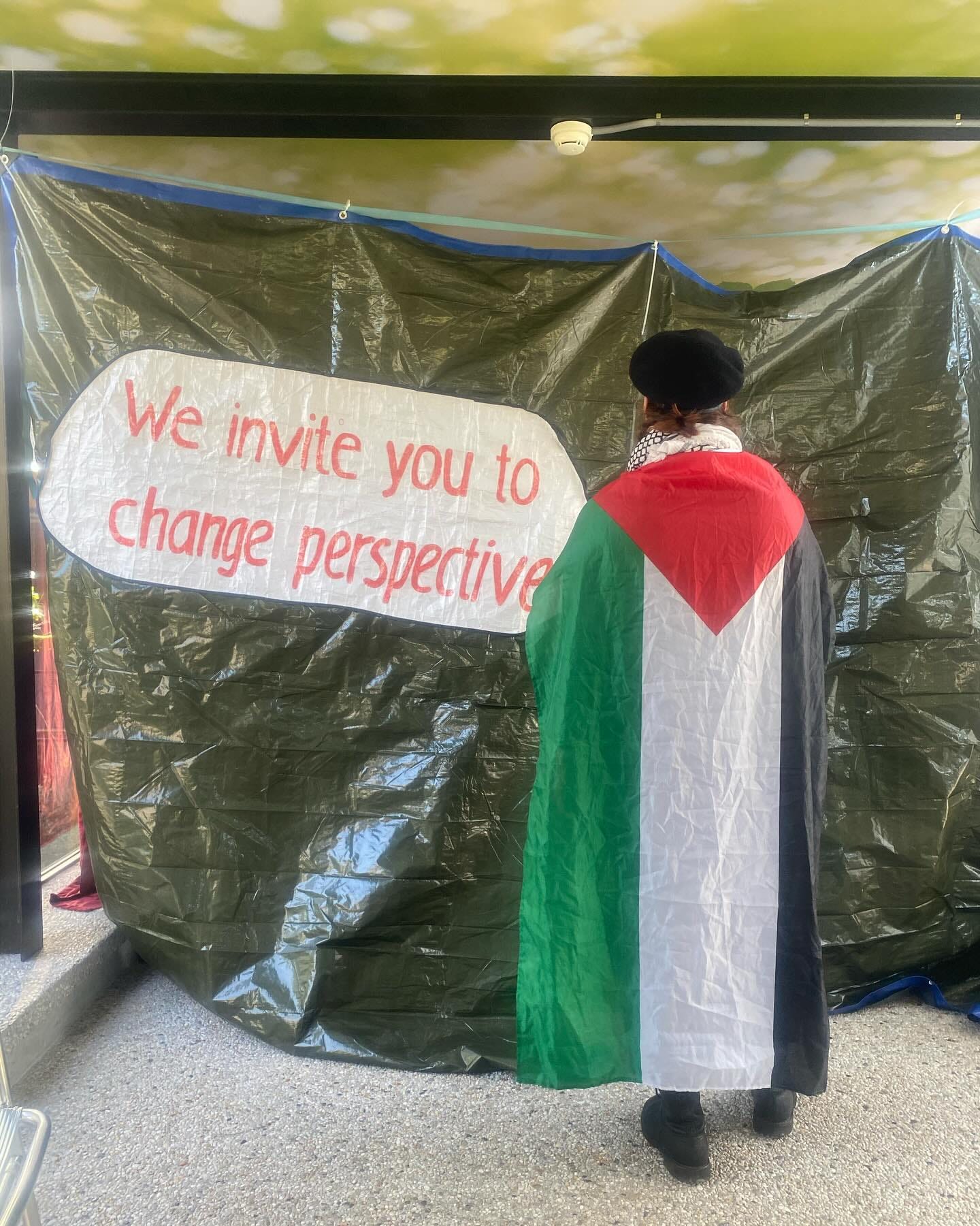
Dear comrades,
We have some news to share with all of you!
As of October 16th the Coimbra Academic Association (Associação Académica de Coimbra, AAC), representing all students from the University of Coimbra (UC), officially supports the BDS movement, demands that the Portuguese government recognise Palestinian statehood, and calls on all academic and public institutions to divest from and cut ties with Isr*eli institutions and companies profiting from the genocide.
Hands of Yemen
Hands of Gaza
Fight imperialim with INTIFADA